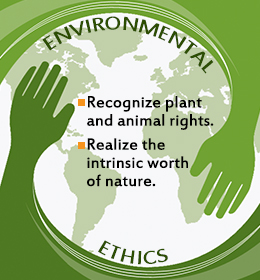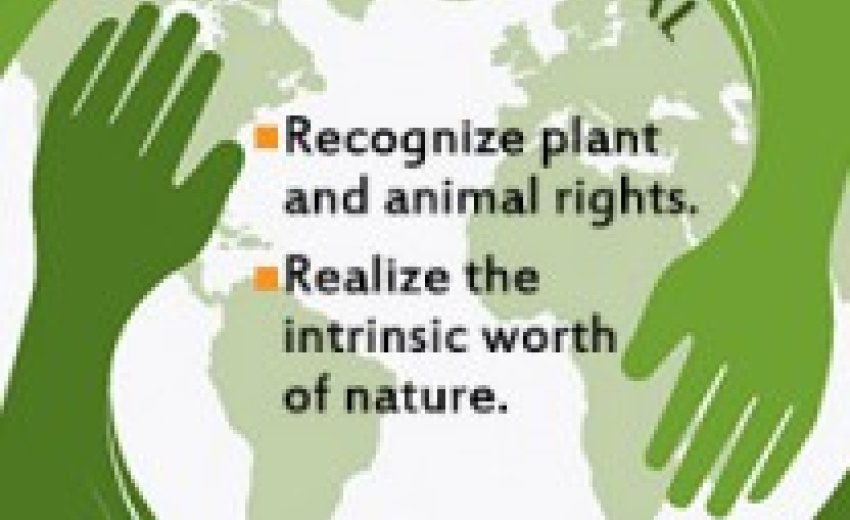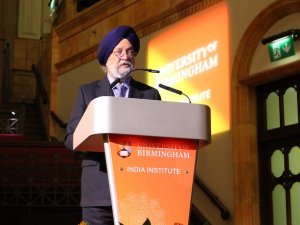Common Faith in Our Future
(Note: The following article is based on the author's presentation as the Sikh participant in the Interfaith Panel on environmental ethics at Windsor Castle on Tuesday 14 November, 2006.)
 Thursday, 18 February 2016: I welcome this opportunity to give the Sikh view in answering the question before us: How can we support each other in the work that we must do with reference to the Earth Charter. The ecological changes due to pollution and overuse of earth's resources are causing much concern. They may not be reversible and threaten life in many parts of the world.
Thursday, 18 February 2016: I welcome this opportunity to give the Sikh view in answering the question before us: How can we support each other in the work that we must do with reference to the Earth Charter. The ecological changes due to pollution and overuse of earth's resources are causing much concern. They may not be reversible and threaten life in many parts of the world.
“Our common future” to which the Earth Charter refers, is only possible with common faith in our future. That means that world faiths need to establish a common understanding based on shared values. Science and technology gives us knowledge of the physical world around us; only faith can change our habits and attitudes. The Charter refers to this conversion as “a change of mind and heart”.
Humanity can be converted to a more caring life-style, if the ecological message coming from Governments and agencies, and the message from religious teachers and preachers to religious congregations, is the same.
(Point 1): Let us accept that religion has an important role to play in cultivating a more caring attitude towards our environment.
I shall now turn briefly to Sikh teachings. Sikhism has a powerful message for humankind regarding ecological issues.
We are taught by the Sikh holy Scriptures, Guru Granth Sahib, that: The Creator Being created the air and the environment, which created water and brought life on earth. Nights, days, seasons, wind, water, fire and nether worlds, therein he created limitless diverse species with interdependent modes of life. In the midst of these He established the earth as His temple. The stability of the earth in the universe and the survival of life on earth depend on the practice of dharam.
In Sikhism, dharam is also the word for faith or religion. Dharam places a duty on all to ensure that diversity is preserved and interdependence of creation is maintained; that the dependence of one on another – and that includes human relationships - is not betrayed. That our neighbours’ rights are respected. Dharam also teaches us to understand God’s law, Hukam or Rzaa.
The Earth is the sacred place where we practise dharam to achieve the ultimate purpose of this life, which is nearness to the Creator Being. We must not desecrate this temple of God. Regrettably, due to self-centred materialism, dharam is something the New Age humankind seems to be moving away from.
(Point 2): Relates to the first point above. There is greater need to practise dharam today; call it religion if you like, and not less.
The Earth Charter provides us with a common framework. It covers a wide range of interrelated topics and not just bionomics and environmental issues. It appears to be a collation of the values shared by all religions. It can be interpreted to accord with the core values of the world religions. There is a need to interpret ancient religious texts (idiom and allegory) in terms of 21st-century issues.
(Point 3): Religious texts should be continually researched and their idiom and allegory interpreted so that every religion has an ecological message.
(Point 4 is a question for discussion): Can we make the Earth Charter the meeting point of world religions?
Religious teachers and preachers need to place greater stress on human values shared by all religions. Let them actively seek converts to those values.
Sikhism opposes aggressive evangelism in the name of religion because that causes friction between religions.
(Point 5): In order to promote interfaith harmony and common approach to the global challenges, religions need to respect different paths to the same common human goals.
Human equality is taken for granted in today’s society. However, equality of women is a very important aspect of Sikh teachings. The Sikh Gurus appointed women preachers in their own time. Also, equality of and respect for women, may have a direct bearing on population control. I leave that as a thought for further discussion.
Religion teaches us to live simple lives. Regardless of one’s economic position, all have the same right to earth’s resources and to be fed; and the same duty to serve creation without distinction and in humility. Wealth itself does not give any individual, group or country, a superior right to earth’s resources. Affordability alone does not give us the right to use up more than our fair share of scarce resources.
(Point 6): Religion can give guidance to humankind. There is a need for global understanding, that no individual, group or nation has the God given right to use up more than their fair share of earth’s resources.
We also need to examine Western institutions and the main economic drivers more critically in relation to the Earth Charter and religious teaching.
Democracy, by its very nature, concentrates on winning elections. That often means pursuance of short term policies and projects, regardless of the environmental consequences in the longer term.
Economic models and financial institutions take little account of ecological and environmental factors. The stress is on consumerism, larger markets for increased production of luxury goods and services with little regard for the damage being done to the environment and global resources.
(Point 7): Religion needs to make up for some of the shortcomings of our current political, administrative and economic systems. Alternatively, or in parallel, the political and economic systems need to continue evolving to secure the future of the earth.
Sikhism welcomes scientific research and developments which benefit life on earth. However, it is also the Sikh belief that God has no equal, nor can God’s creation be emulated. It is human arrogance which leads us to believe that we can emulate what nature has produced over millions of years; that we can restore nature’s fine balance for sustaining life while we continue to use up natural resources at an ever accelerating pace.
(Point 8): All religions should continue to caution science and technology about new discoveries in various fields and their applications. The results may be unpredictable, damaging and may not be reversible.
According to Sikh teachings, human beings are at the head of all species. That position makes every human being responsible for looking after the environment which sustains life on earth. In His diverse creation resides the Creator Being, watching over all with joy and satisfaction.
To serve creation is to serve the Creator.
Gurmukh Singh
(Principal UK Civil Servant ret’d)
E-mail: [email protected]
© Copyright Gurmukh Singh (U.K.)
Please acknowledge quotations from this article.
Articles may be published with acknowledgement.





